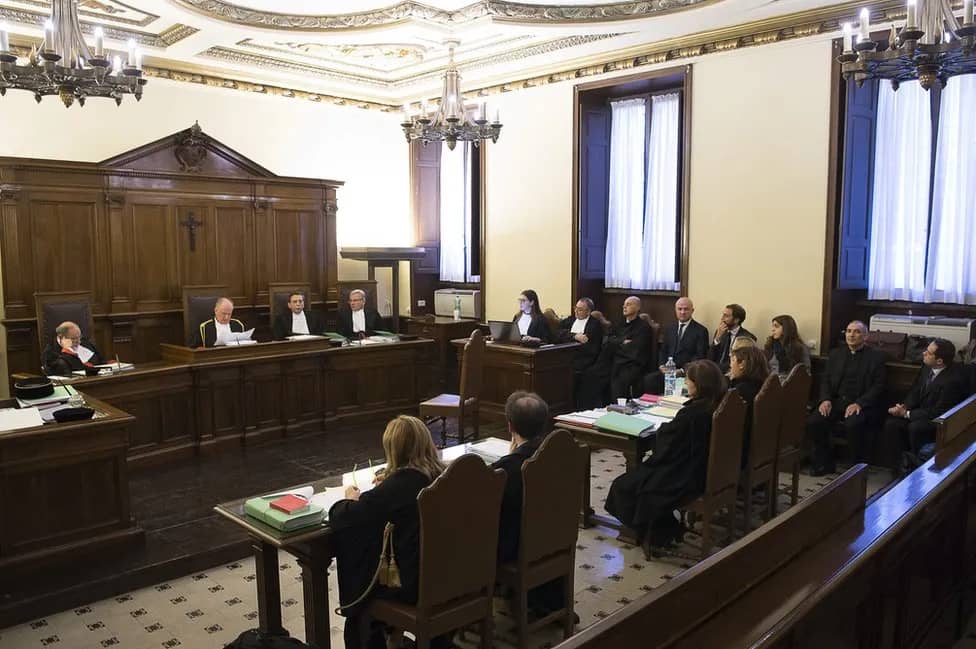Rome – Although formally speaking his special jubilee Year of Mercy is already over, Pope Francis is nevertheless closing out 2016 with one final gesture of mercy, in effect commuting the prison sentence of a former Vatican official at the heart of the “Vatileaks 2.0” scandal.
The Vatican announced Tuesday that the prison term of Spanish Monsignor Angel Lucio Vallejo Balda, originally sentenced to 18 months behind bars in July, has been changed to a form of “conditional freedom,” and that he was no longer in Vatican custody as of Tuesday evening Rome time.
Vallejo Balda had been the lone defendant in the case who was actually assigned a prison sentence.
The “2.0” is a reference to the first Vatican leaks affair, which broke out in early 2012 under emeritus Pope Benedict XVI. Its successor, which erupted in 2015 under Pope Francis, involved the unauthorized publication of confidential documents from a study commission created by Francis in 2013 examining financial reform in the Vatican.
Eventually, five people were charged in the affair for crimes under Vatican law: Vallejo Balda; his Italian lay assistant, Nicola Maio; Italian laywoman and PR consultant Francesca Chaouqui; and Italian journalists Gianluigi Nuzzi and Emiliano Fittipaldi, who published books based in part on the leaked documents.
Those books by Fittipaldi and Nuzzi detailed, among other things, bishops and cardinals angling for big apartments, the high costs of getting a saint made, and the loss to the Holy See of millions of euros in rental income because of undervalued real estate.
After a nine-month Vatican trial that concluded in early July, Chaouqui, who had served as a member of the study commission on Vatican finances, was also found guilty and assigned 10 months of jail time, but that sentence was suspended for five years. Assuming she does not commit another criminal offense under Vatican law, she will therefore not be expected to serve the term.
Maio was found innocent, and the Vatican court held that it had no jurisdiction over the two journalists.
At the time, a Vatican spokesman defended the sentences imposed by the court as “necessary.”
“It was necessary to demonstrate the will … to combat the incorrect consequences of tensions and polemics internal to the Vatican, which, for some time, have been reflected externally through indiscretions and leaks of documents to the media, creating a cycle and an ambiguous and negative context,” said Jesuit Father Federico Lombardi, who was then the pope’s spokesman.
Vallejo Balda admitted during court proceedings that he gave Nuzzi 85 passwords to password-protected documents, but said he did so because he felt pressure to turn them over. He denied that the journalists themselves threatened or intimidated him, and pointed the primary blame on Chaouqui.
Tuesday’s Vatican statement did not elaborate on what the terms of the “conditional freedom” for Vallejo Balda might be.
It did, however, specify that he will no longer work for the Vatican in any capacity, meaning he is now under the jurisdiction of Bishop Juan Antonio Menéndez Fernández of Astorga, Spain, which is the diocese to which he belongs.
The holiday gesture of clemency for Vallejo Balda is not unexpected, given that Pope Benedict pardoned Italian layman Paolo Gabriele, who acknowledged being the one to pass confidential documents to Nuzzi in the first Vatican leaks affair, just days before Christmas in 2012.
















